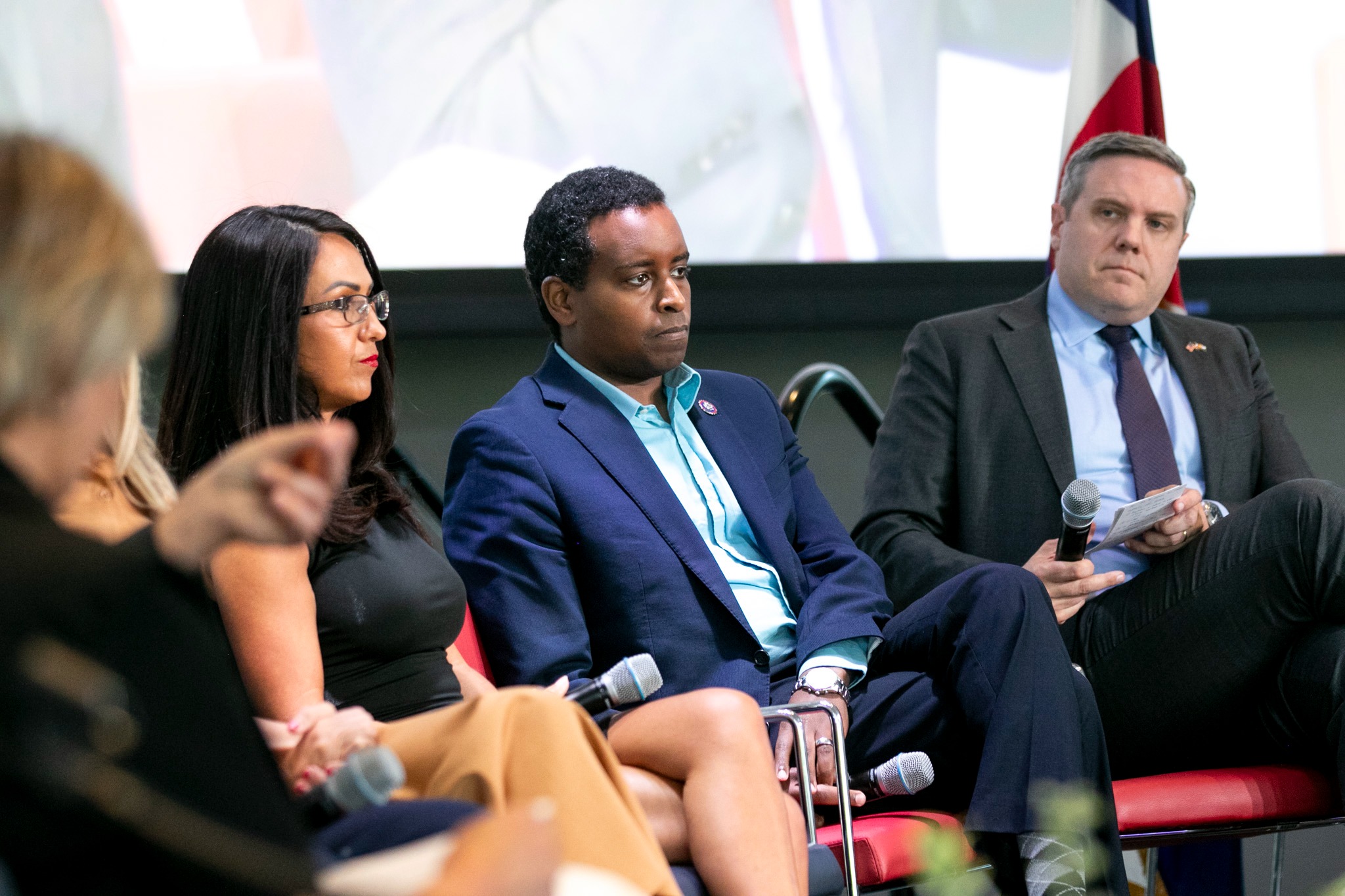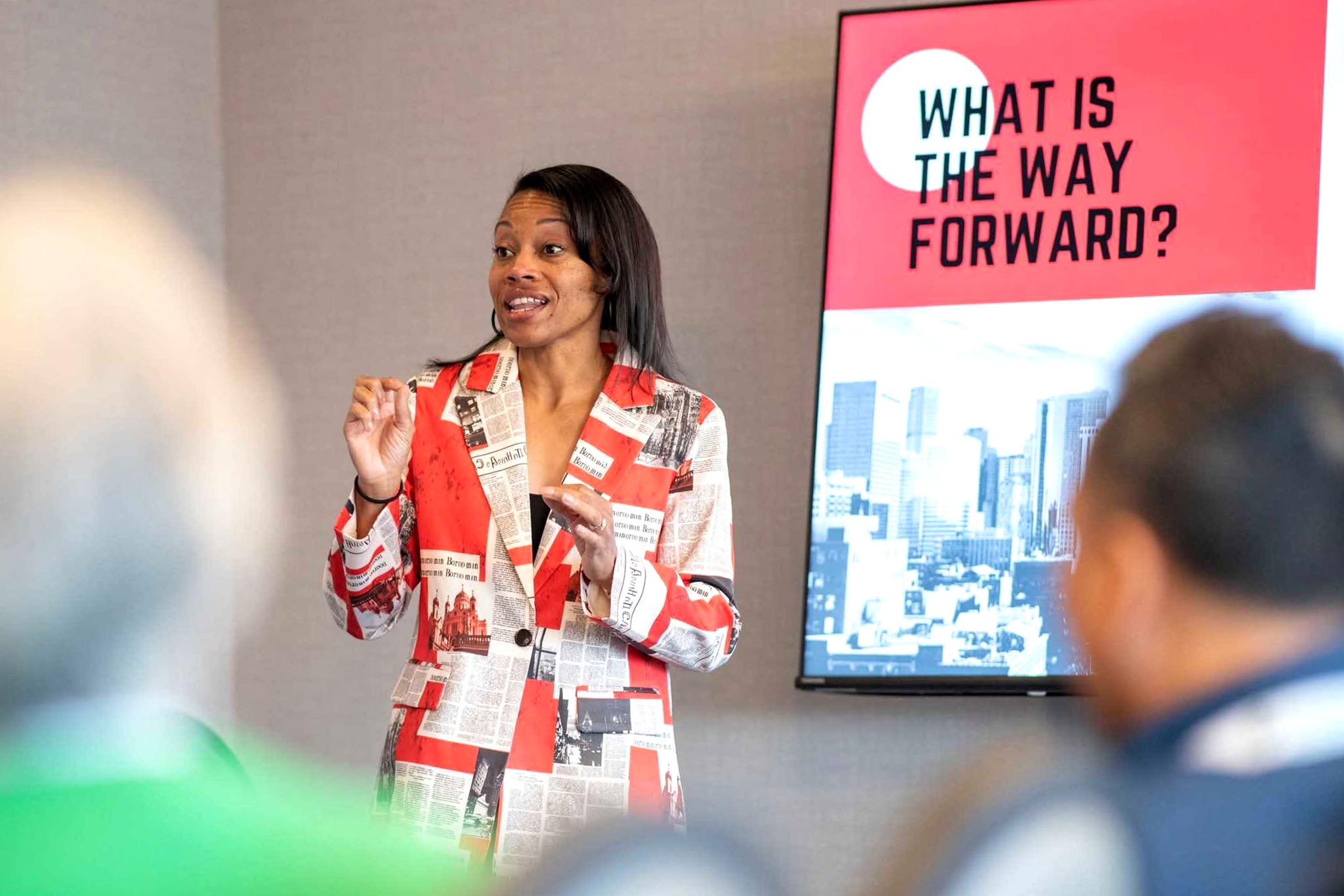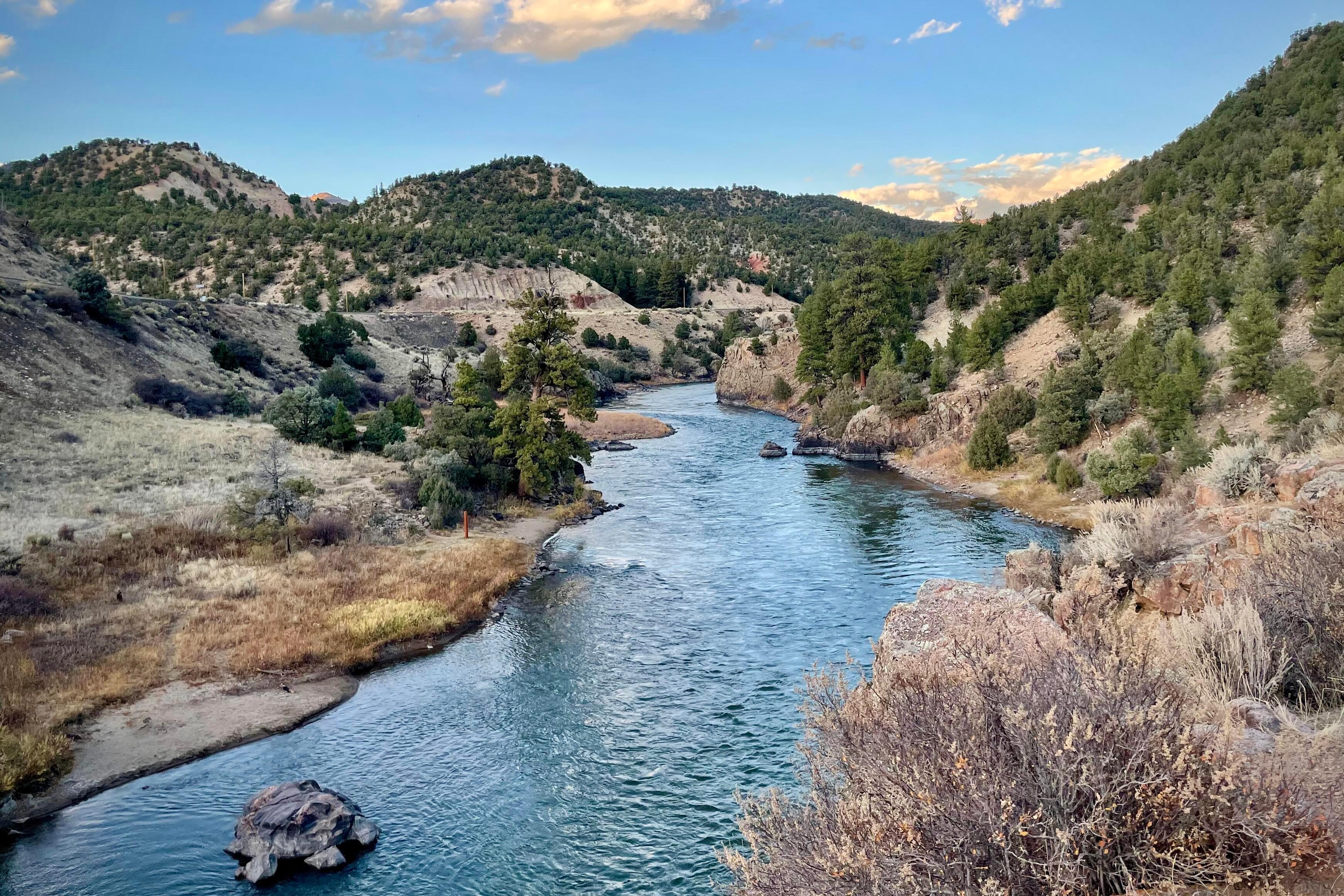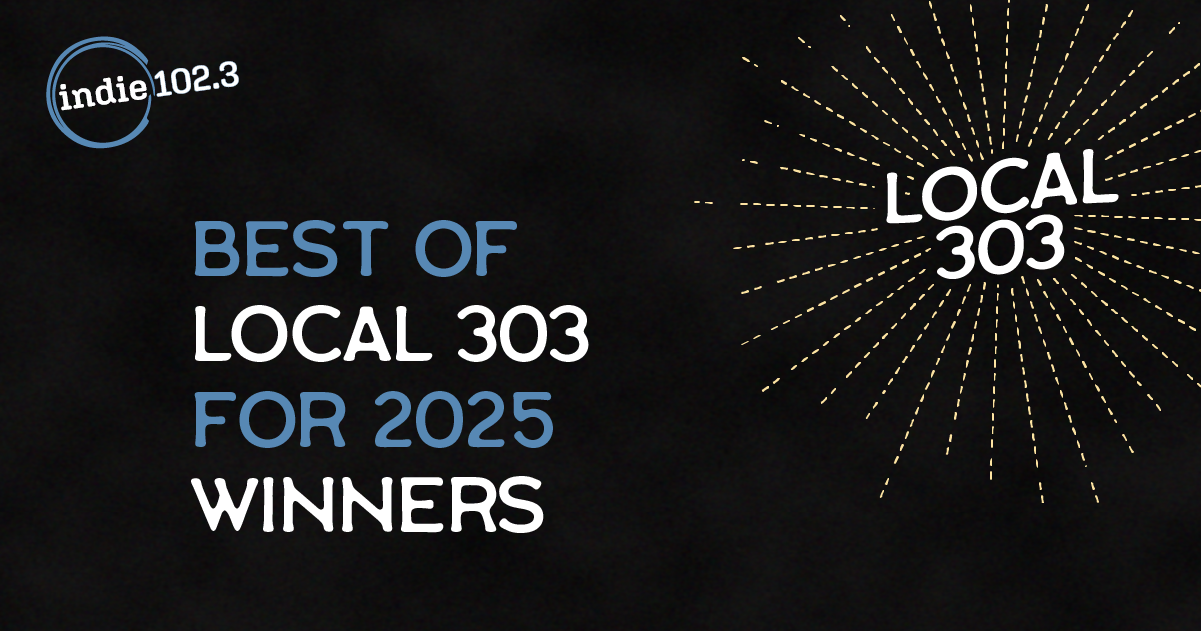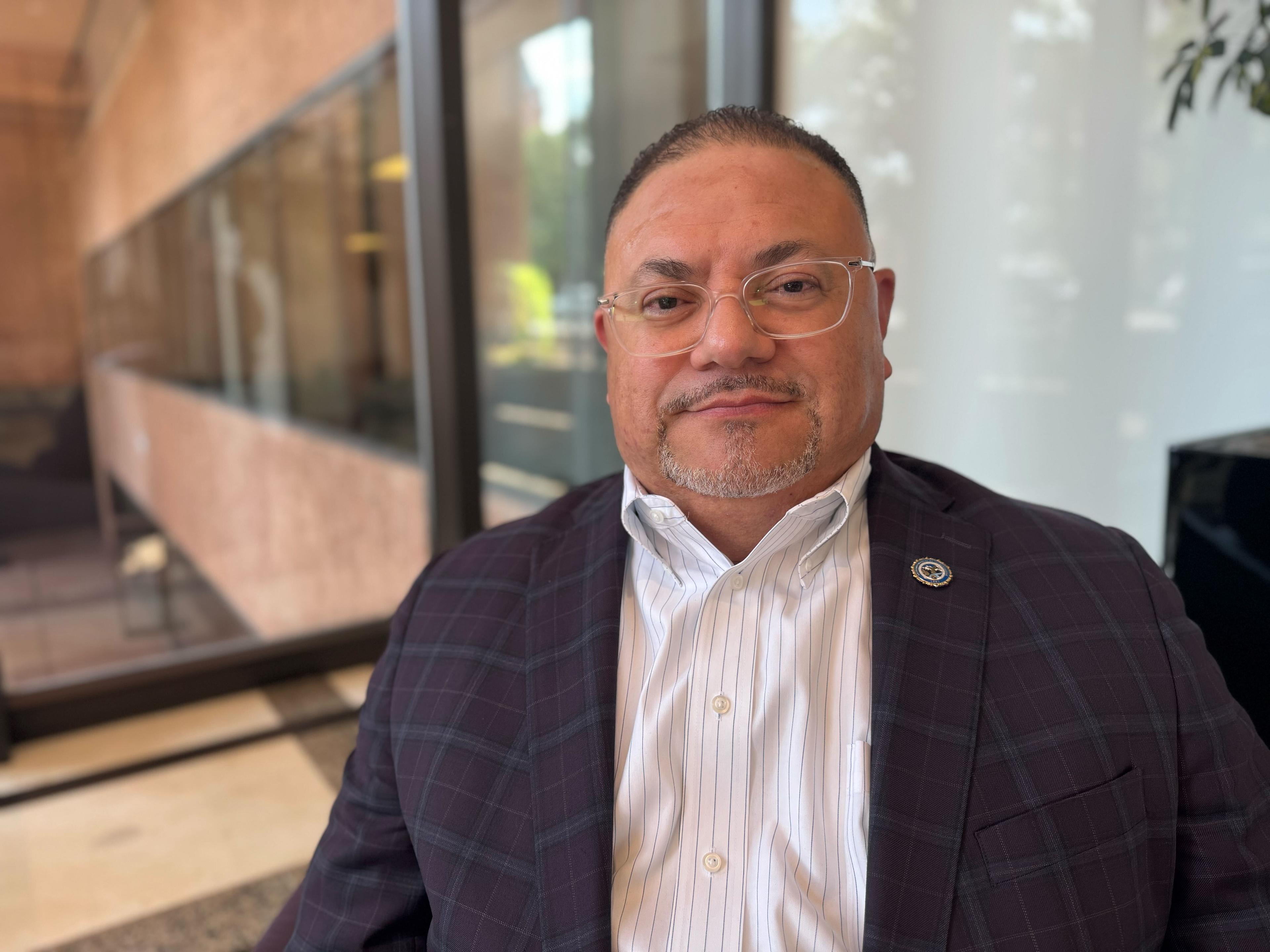
One could understand Armando Saldate believing he’d inherited a “beleaguered” organization when he took over as the head of the Colorado Bureau of Investigation last July. A cascading series of highly public missteps had kept the CBI in the headlines, including the discovery that the main expert in its forensic lab, Yvonne “Missy” Woods, allegedly mishandled and manipulated DNA in the testing process in dozens of cases. As a result of sorting through that problem, another arose – a backlog in processing data from other crimes, like rape, that was taking as long as a year and a half to complete.
“I really thought I was gonna come into folks where morale was horrible, where they were beat down, where there was a lot of attrition,” Saldate told Colorado Matters host Ryan Warner. “I had assumed that maybe the crime lab had lost a lot of folks. When things get bad, people sometimes leave.
“That's not what I saw; I saw a resilient bunch. I saw folks that were committed to doing the work and making a difference.”
In part, because of contracting some of the work to outside private laboratories, Saldate said that the backlog in processing evidence has gone from more than 1,300 cases and 500 days in January, to about 940 last month, adding that by next summer, the turnaround time should be closer to the CBI standard of 90 days.
Saldate also discussed the CBI’s role in assisting jurisdictions in cases that take place outside the Front Range, like the Davis Mortuary in Pueblo, where it was recently discovered that the remains of about two dozen bodies had been mishandled. The CBI is one of a number of law enforcement agencies gathering evidence and trying to identify the remains.
Saldate said while technology like forensic odontology, or identifying victims through dental records, is being used, “it may (come) down to what someone was wearing when they were buried, and things like that,” Saldate said. “And that's helpful in us trying to identify those, but ultimately, we may need to rely on DNA and DNA samples and genealogy, maybe get family members to do comparisons.”
Interview Highlights:
His reaction to news of the Missy Woods case (which preceded his joining the CBI):
“That's a bad mark on all law enforcement. We all feel the effects. I even look back to the murder of George Floyd. You know, that took place a long way from Denver, but it was something that had an effect on us and someone like me that spent my career in public safety. It was a gut punch. It was where someone betrayed the trust that the community has in us, and it made all of our jobs harder. But what I hope to do and why I took on the opportunity to join CBI is I hope to help, I hope to help restore some of that trust. I hope to help improve things. So something like this will never happen again.
“One of the things that alarmed me is she had such a long career, and what I wondered about was one, and I'm sure others were, the community was wondering about, are there folks that are unjustly imprisoned or have been unjustly arrested or are sitting in prisons now that shouldn't be there? The answer I've gotten was no; thankfully, that was not the case.”
Editor’s Note: Woods has been charged with 102 counts related to 58 instances of alleged criminal misconduct committed between 2008 and 2023; she has a court hearing scheduled for last October.
On how the Woods case contributed to a backlog in processing evidence in other cases, which in turn delays arrests and determining guilt or innocence:
“We had to pull DNA scientists off those cases, working on backlog cases, to really review Missy Woods’ old cases. In processing the kit. Is there evidence, is there DNA there that can be processed, where we can identify a suspect? That is a question. But also what we need to understand, and this is very important for us to process forensic results, whether we're looking at latent prints, whether it's our firearms unit, our toxicological unit, where we're talking about here, our DNA unit. We need to have accurate results, but they also need to be timely. So what it means for justice is it's quicker that the investigators can identify a suspect and have other leads to round out the investigation, to where it's getting charged and someone's getting arrested.”
On his desire for the CBI to be a resource for law enforcement in rural areas of Colorado:
“I flew to Ignacio, Colorado; so luckily (being from) Arizona, I have the understanding and appreciation for our tribal partners, working with our Indian reservations, and I knew that'd be important, carrying that experience here to CBI. And one of my first opportunities was to go down there for a meeting with our tribal partners. What we were talking about, though, that day is our MMI alert process, you know, the missing, murdered, endangered indigenous communities, what we've done there, what we can do to better that, and what can we do for that.
“I think that our true value and the biggest bang for our buck that we can get from CBI is helping our rural partners. They truly are partners. And one of the things I love about this job, and one of the attractions to the job was going out and being present in those communities, that they know that they can pick up the phone, whether they're in a small rural farming town, in a remote corner of Colorado, that they can pick up the phone and get the same service from CBI that Pueblo just got.”
On self-care amidst the sometimes harrowing work done by the CBI:
“Our partners, our wives, husbands, boyfriends, girlfriends, you know, partners in, in this, it's a commitment for them. It is truly a commitment and sacrifice because, as long as I've been doing this work, you take it home with you. There are bad days and, and there are times as a spouse and as a loved one, as a partner, that I think they know when to ask.
“I know that those folks (who go) into those places and that see the things and investigate these crimes, those folks have professionalism and they've dealt with an experience, but it's also cumulative. And I know that we have to be intentional about checking on their mental state, making sure that they have avenues and outlets to talk about it and, and talk through it. Because it might just be one incident that takes you to that place where you're now maybe not doing so well.”

